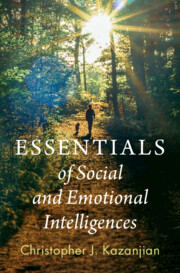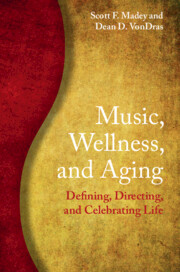8 results
Chapter 2 - Multicultural Humanistic Psychology
-
- Book:
- Essentials of Social and Emotional Intelligences
- Published online:
- 25 March 2025
- Print publication:
- 27 March 2025, pp 26-62
-
- Chapter
- Export citation
Chapter 11 - Culturally Relative Self-Actualization
-
- Book:
- Essentials of Social and Emotional Intelligences
- Published online:
- 25 March 2025
- Print publication:
- 27 March 2025, pp 247-260
-
- Chapter
- Export citation
Chapter 1 - Social and Emotional Intelligences
-
- Book:
- Essentials of Social and Emotional Intelligences
- Published online:
- 25 March 2025
- Print publication:
- 27 March 2025, pp 4-25
-
- Chapter
- Export citation
Chapter 12 - A Heuristic Exploration into the Social and Emotional Intelligences
-
- Book:
- Essentials of Social and Emotional Intelligences
- Published online:
- 25 March 2025
- Print publication:
- 27 March 2025, pp 261-270
-
- Chapter
- Export citation

Essentials of Social and Emotional Intelligences
-
- Published online:
- 25 March 2025
- Print publication:
- 27 March 2025
Chapter 6 - Psychosocial Theories and Their Implications for Psychiatry
-
-
- Book:
- Fundamentals of Clinical Psychiatry
- Published online:
- 02 January 2025
- Print publication:
- 16 January 2025, pp 39-49
-
- Chapter
- Export citation
2 - Classic Approaches to Religion and Spirituality
- from Part Two - The Great Theorists
-
- Book:
- The Psychology of Religion
- Published online:
- 01 November 2024
- Print publication:
- 31 October 2024, pp 47-88
-
- Chapter
- Export citation

Music, Wellness, and Aging
- Defining, Directing, and Celebrating Life
-
- Published online:
- 07 October 2021
- Print publication:
- 21 October 2021

